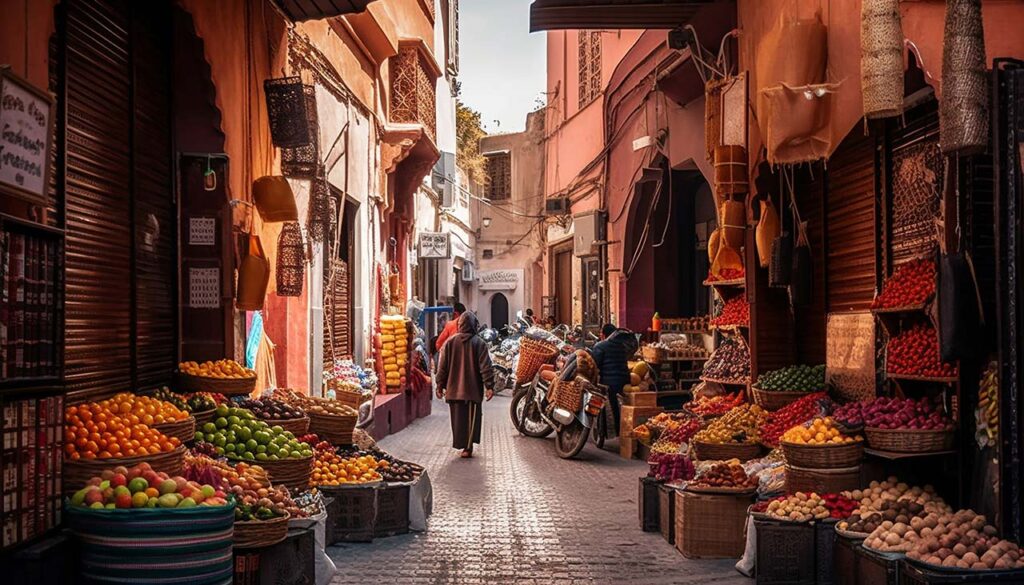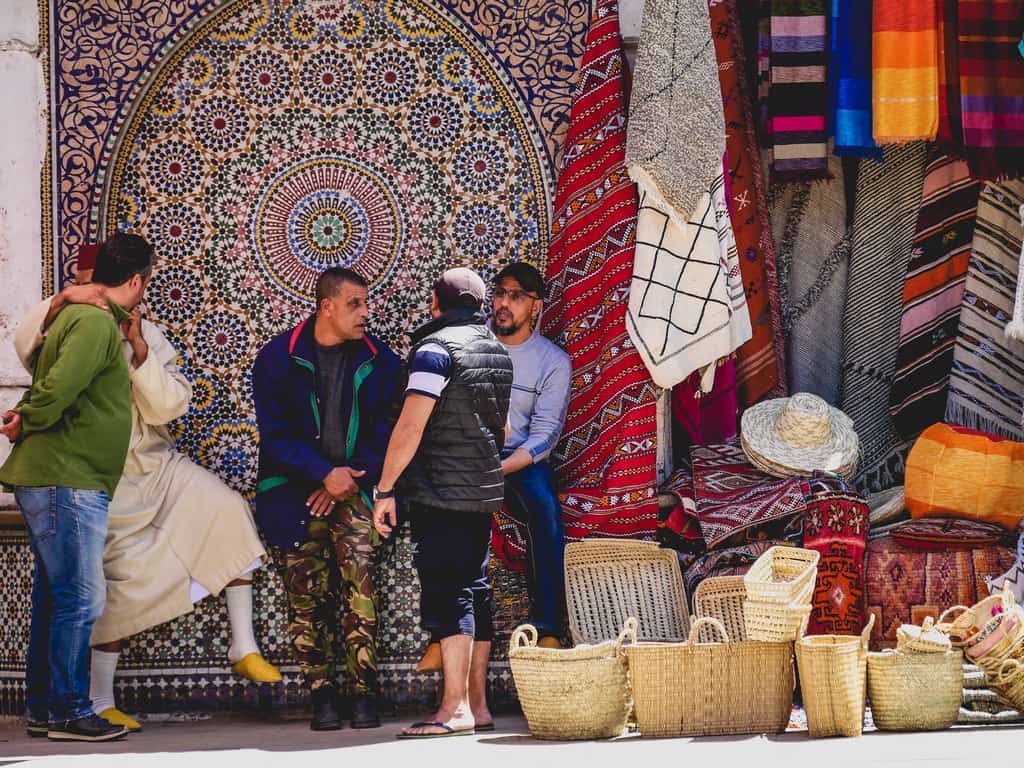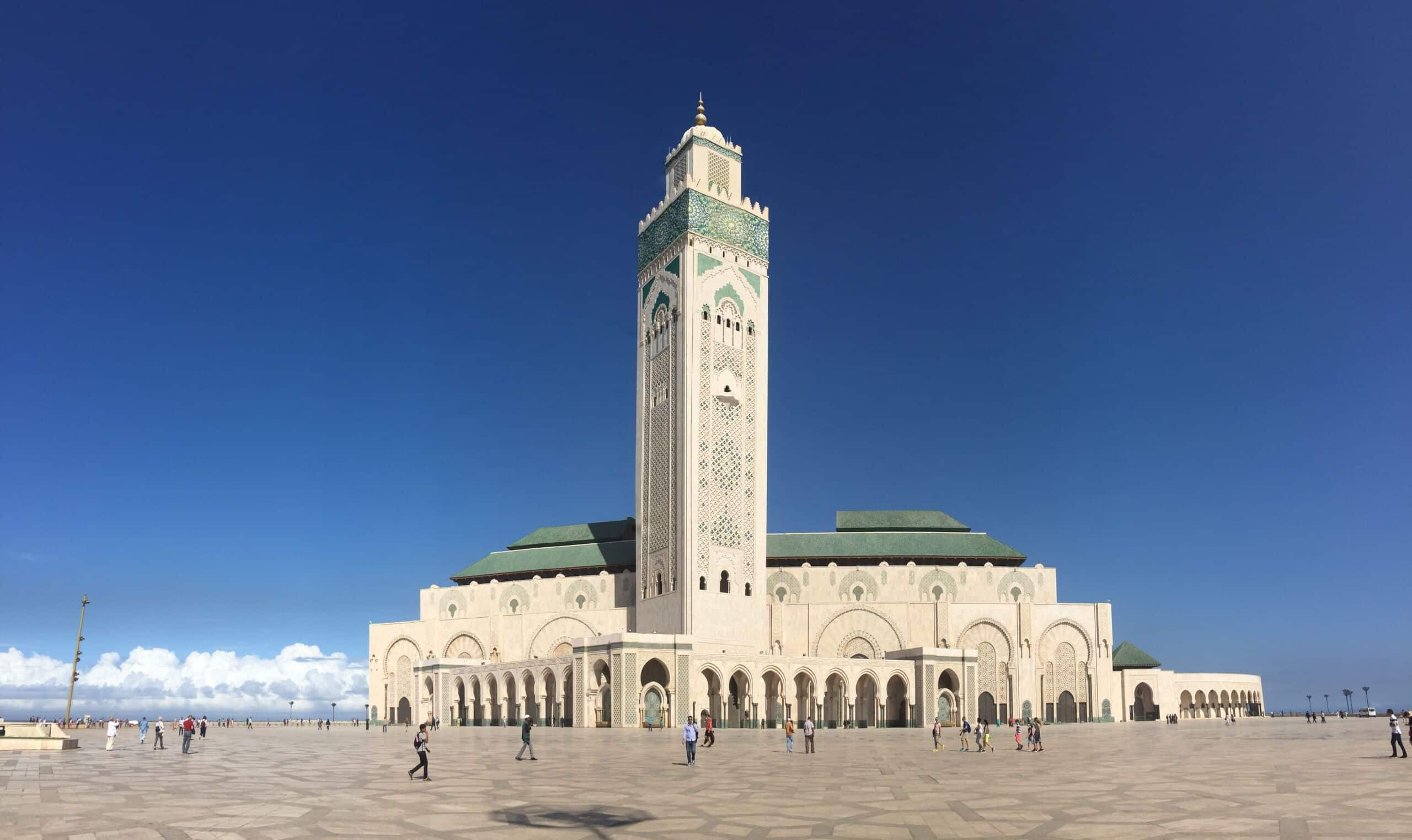The Complete Traveller's Manual for Visiting Morocco During Ramadan

Understanding Ramadan in Morocco
Significance of Ramadan in Islam
Ramadan holds a profound significance in Islam, being the ninth month of the Islamic lunar calendar, during which Muslims worldwide observe fasting from dawn until sunset. This sacred month is not only about abstaining from food and drink; it is a time for spiritual reflection, prayer, and community. The fast, known as Sawm, is one of the Five Pillars of Islam, which are fundamental acts of worship that shape a Muslim's faith and practice.
The act of fasting during Ramadan is deeply symbolic:
- Self-discipline: It teaches self-control and helps in purifying the soul.
- Empathy: Fasting fosters a deep understanding of the struggles faced by the less fortunate.
- Community: It strengthens bonds among families and friends through shared experiences of breaking the fast, known as Iftar.
Cultural Importance of Ramadan in Morocco
In Morocco, Ramadan transcends religious observance and evolves into a vibrant cultural phenomenon. The atmosphere is infused with a sense of community and unity as people come together to celebrate.
- Family Gatherings: Evenings are marked by communal Iftar meals, where families and friends gather to break their fast, often featuring traditional dishes that are steeped in Moroccan culinary heritage.
- Decor and Celebrations: As dusk approaches, homes and public places adorn themselves with festive decorations, creating a warm and inviting environment. Street vendors often set up stalls with a variety of delightful foods and sweets, ramping up the festive spirit.
- Night Prayers: After Iftar, many Moroccans participate in Taraweeh, special nightly prayers held at mosques, where lengthy recitations of the Quran create an uplifting ambiance.
The blend of spirituality, family ties, and cultural expressions during Ramadan in Morocco makes it a truly unique experience, appealing to both locals and visitors. As you immerse yourself in this month of fasting and reflection, you'll notice the warm hospitality and joyful spirit that characterise Moroccan society during this time.

Travelling to Morocco During Ramadan
Best Time to Visit Morocco During Ramadan
If you’re pondering a trip to Morocco during Ramadan, timing your visit can greatly enhance your experience. The month of Ramadan shifts annually in the Gregorian calendar, rotating approximately ten days earlier each year. To catch the best of what Morocco has to offer during this month, aim for the middle days when the initial fasting periods settle in, and the festive spirit flourishes.
- Cultural Richness: Visiting during the second half of Ramadan often provides a unique opportunity to witness local customs at their peak, especially as the festival of Eid al-Fitr approaches, which marks the end of fasting and is celebrated with feasting and festivities.
- Weather Considerations: Depending on the time of year, spring may offer pleasant weather for exploring outdoor attractions, making late March to late April an enticing period for visitors.
Impact of Ramadan on Tourist Activities
Ramadan undoubtedly influences tourist activities, and understanding this can help you navigate your adventures smoothly. While some establishments may alter their schedules or services, the overall experience during this month remains vibrant.
- Restaurant Operations: Many restaurants and cafes will operate only in the evenings, serving Iftar meals after sunset. This creates a unique dining experience as locals and visitors share tables, breaking fast together.
- Attraction Hours: Some tourist attractions may have altered hours, closing earlier in the day. It’s wise to check in advance for the best times to visit.
- Unique Events: Ramadan can also bring about a series of special local events. You might find open-air markets and cultural performances in full swing after dusk, showcasing traditional music and arts.
Engaging in local festivities can provide a deeper understanding of Moroccan culture during this rich and reflective month. Just be aware of the changes in customs and routines as you embark on this unique journey.

Etiquette and Behavior for Travellers
Dress Code During Ramadan
When travelling to Morocco during Ramadan, being mindful of the local dress code can significantly enhance your experience and show respect for cultural customs. Moroccans take their attire seriously, particularly during this sacred month, where modesty reflects maturity and respect for religious practices.
- Modesty Matters: Both men and women should aim to dress modestly. For women, long skirts or loose trousers paired with long-sleeved blouses are advisable. Lightweight shawls can be a great layering option. Men should opt for long trousers and collared shirts to maintain a respectful appearance.
- Bright Colours are Welcome: While modesty is key, don’t shy away from wearing vibrant colours. Many Moroccan locals enjoy playful patterns that reflect cultural heritage, contributing to the festive atmosphere of Ramadan.
- Footwear Choices: Choose comfortable footwear, especially if you plan on exploring markets or historical sites.
Respectful Behavior in Public Spaces
In addition to dressing appropriately, showing respect in public spaces is vital, especially during Ramadan. Here are a few key pointers to keep in mind:
- Be Mindful of Food and Drink: Refrain from eating, drinking, or smoking in public during daylight hours. While it may be difficult at first, this practice is crucial in recognising the fasting experience of those around you.
- Quiet Conversations: If engaging in conversations, keep your voice low; boisterous laughter or loud discussions may be considered rude.
- Greet Locals: A simple “Salam Alaikum” (Peace be upon you) can go a long way in connecting with locals and showcases your willingness to embrace their culture.
By adhering to these etiquettes, you’ll not only respect the local customs but also create a more enjoyable experience for yourself and those around you. Observing Ramadan in Morocco is as much about understanding and participating in the local customs as it is about exploring its beauty.

Dining and Food Options During Ramadan
Traditional Moroccan Iftar Practices
As the sun sets, the sound of the adhan (call to prayer) signals the end of the daily fast, and vibrant Iftar meals come to life across Moroccan homes and communal gatherings. The practice of breaking fast is steeped in tradition and often begins with a few dates and a glass of sweetened mint tea— symbolising the modest beginning to a feast.
- Gathering Around the Table: Iftar encourages communal bonding. Families and friends gather together, sharing stories and laughter, strengthening their connections during this sacred month.
- Rituals of Hospitality: If you’re invited to join a local family for Iftar, be sure to express your gratitude. Bringing a small gift, such as pastries or fresh fruit, is a courteous gesture that shows appreciation for their hospitality.
Popular Foods to Try During Ramadan
Moroccan cuisine is a feast for the senses, and during Ramadan, it truly shines. The menu often features a delightful fusion of flavours, showcasing the country’s culinary heritage. Here are some must-try dishes during Iftar:
- Harira: This hearty soup made with tomatoes, lentils, chickpeas, and spices is a classic starter to break the fast. Enjoyed hot, it’s nourishing and flavourful.
- Briouats: Think savoury pastries filled with meat, cheese, or vegetables, delicately fried to golden perfection. They are a popular snack that infuses festive flair into any meal.
- Tagine: A staple Moroccan dish, tagine can be prepared with various meats or vegetables, slow-cooked with aromatic spices. It’s an absolute must-try that encapsulates Moroccan flavour.
- Chebakia: For those with a sweet tooth, this sesame cookie coated in honey and sprinkled with sesame seeds is a delightful dessert often enjoyed during Ramadan.
As you partake in these culinary delights, you’ll undoubtedly discover that dining during Ramadan in Morocco is an experience filled with warmth, connection, and gastronomic wonder. Embrace the flavours, and let the shared meals enrich your understanding of Moroccan culture during this special time.
Sightseeing and Activities During Ramadan
Visiting Mosques and Historical Sites
Exploring the rich historical and architectural wonders of Morocco during Ramadan can be an awe-inspiring experience. The majestic mosques, imbued with cultural significance, often become even more enchanting during this holy month.
- Hassan II Mosque in Casablanca: One of the largest mosques in the world, it features stunning architecture and breathtaking views of the Atlantic Ocean. Visiting during Ramadan allows you to witness worshippers gather for Taraweeh prayers, filling the atmosphere with reverence.
- Koutoubia Mosque in Marrakech: As the sun sets, this iconic mosque becomes a beautiful landmark, with its minaret shining in the evening light. Although non-Muslims cannot enter the prayer hall, the gardens around it are ideal for a peaceful stroll.
- Cultural Tours: Many historical sites, such as the ancient medinas of Fes and Essaouira, have fewer crowds during Ramadan, allowing you to explore their winding alleys at your own pace.
Participating in Ramadan Events and Festivities
Ramadan is a month full of cultural richness, and participating in local events can provide a unique perspective on Moroccan traditions.
- Night Markets: After Iftar, vibrant souks come alive with food stalls and cultural performances. Strolling through the markets, you can enjoy live music and shop for artisan crafts while mingling with locals celebrating the end of their fast.
- Community Iftar Gatherings: Joining in communal Iftars, which are often held in public squares or community centres, offers the chance to share meals with locals and experience the spirit of generosity that Ramadan embodies.
- Eid al-Fitr Preparations: As Ramadan approaches its end, watch out for festive activities leading up to Eid al-Fitr, such as street decorations, special events, and preparations for communal prayers.
Experiencing Morocco during Ramadan invites you to engage deeply with the culture and community that define this special month. By embracing the sights, sounds, and shared moments, you’ll gain a profound understanding of the Moroccan way of life and the significance of Ramadan within it.
Practical Tips for Travelling During Ramadan
Understanding Ramadan Timings
When travelling in Morocco during Ramadan, a basic understanding of the timings can enhance your experience and help you navigate the local customs effectively. Fasting begins at dawn (Fajr) and ends at sunset (Maghrib), with the specific timings varying each day.
- Local Prayer Times: Many apps and websites provide daily prayer times, which will be crucial for planning your activities. These times indicate when to break the fast and when prayer services occur, often impacting the operating hours of restaurants and shops.
- Daily Schedule: Expect a shift in daily life as shops may open later in the day, followed by a bustling evening scene post-Iftar. Restaurants generally remain closed until it’s time to break the fast, so planning meals around these times will ensure you don’t find yourself hungry during the day.
Precautions for Non-Fasting Travellers
If you’re not observing the fast during your visit, it's essential to approach the situation with respect and understanding. Here are a few precautions to keep in mind:
- Quiet Discretion: While you're free to eat and drink in private spaces, try to avoid doing so in public during the fasting hours. If you must eat or drink, seek out enclosed areas or private venues away from the view of those observing the fast.
- Etiquette of Interaction: Be conscious of the fasting status of locals during conversations. They may have a softer demeanour, especially during the earlier part of the day, so patience and understanding go a long way.
- Be Respectful of Customs: Avoid music and loud conversations in public places, as many are in a reflective state during this month.
Embracing these etiquette guidelines will help you enjoy the cultural depth of Ramadan while showing appreciation for the traditions of your Moroccan hosts. By being sensitive to local practices, your journey through this vibrant season will be both respectful and memorable.
Conclusion and Final Thoughts
Recap of Essential Guidelines
As your journey through Morocco during Ramadan comes to a close, let's quickly recap the essential guidelines that will enhance your travel experience. Being aware and respectful of local customs is crucial during this sacred month. Here are the key points to keep in mind:
- Dress Modestly: Choose attire that reflects the local culture—loose, long clothing is a safe bet for both men and women.
- Understand Timings: Familiarise yourself with the daily prayer and fasting times. Plan your activities accordingly to align with the local schedule.
- Public Conduct: Eat and drink discreetly in public during fasting hours and maintain a respectful demeanour in social interactions.
- Join in the Celebrations: Embrace the communal spirit of Ramadan by attending Iftar meals, markets, and cultural events whenever possible.
Cultural Insights from Travelling in Morocco During Ramadan
Travelling in Morocco during Ramadan provides a unique lens through which to experience the rich tapestry of Moroccan culture. You'll discover several cultural insights, like:
- Community and Family: The importance of family and community becomes palpable during this month, as shared meals and joyous gatherings highlight the value of togetherness.
- Generosity and Hospitality: Locals are often incredibly hospitable and willing to share their meals and traditions. Expect to receive warm invitations to join Iftar meals, allowing you to create meaningful connections.
- A Spiritual Journey: Ramadan offers a chance to delve deeper into the spiritual aspects of Moroccan life. Observing the cultural practices around fasting and prayer can foster a greater appreciation for the faith that underpins daily life in the country.
By embracing these insights, your travel experience will not only be enriched with cultural depth but will also cultivate a greater understanding of the Moroccan charm during this special time. As you navigate this dynamic tapestry, you’ll create lasting memories that echo the spirit of Ramadan.
